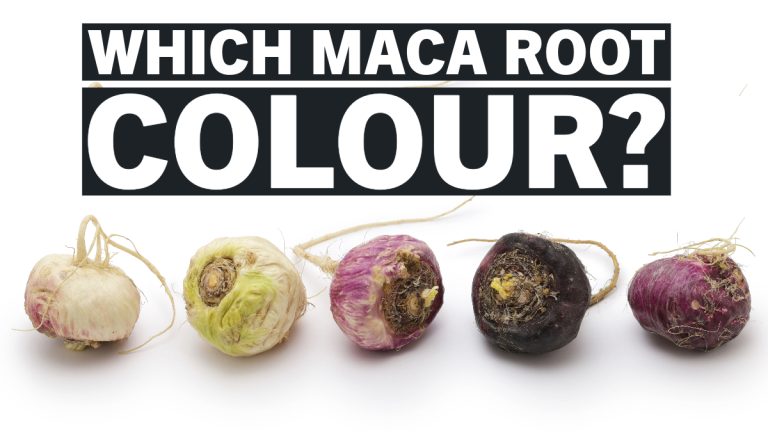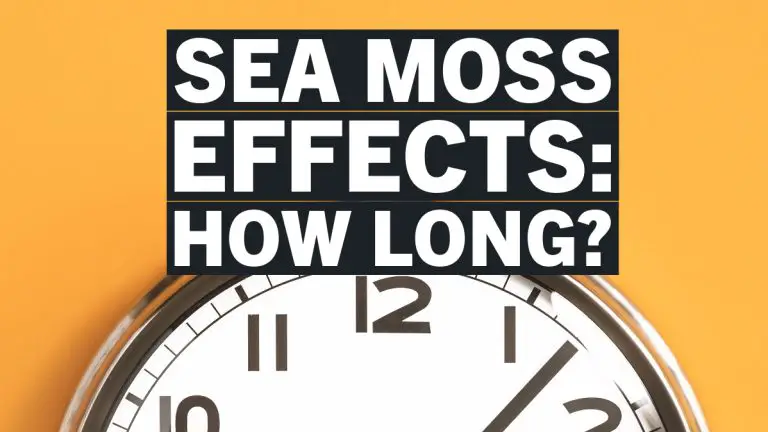How Many Minerals Does Sea Moss Have? A Quick Guide On What’s Inside Sea Moss
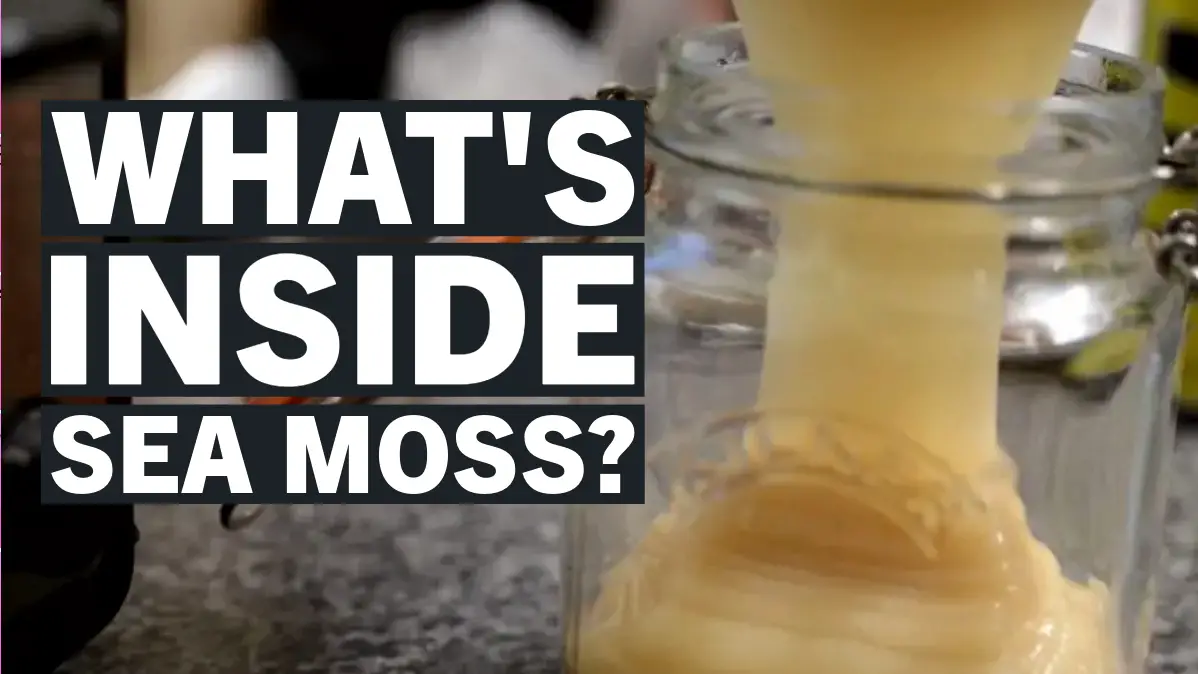
ListedFit is reader-supported. When you buy through links on our site, we may earn a small commission.
Sea moss, also known as Irish moss, is a type of seaweed that has gained enourmous popularity due to its numerous health benefits. Its high mineral content is often mentioned, which plays a vital role in maintaining a healthy body.
Finding the exact number and potency of minerals in sea moss can be challenging, as it varies depending on factors such as the type of sea moss, where it was grown, how it was grown and the surrounding environment but if grown optimally, it should contain 92 minerals.
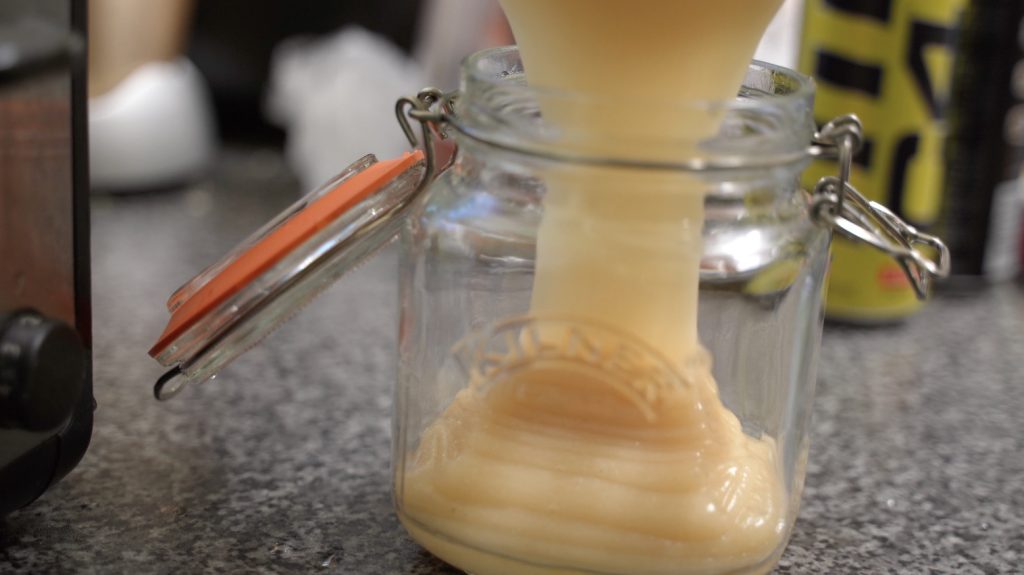
Sea moss offers remarkable nutritional value, including essential vitamins and minerals such as magnesium, calcium, potassium, and iodine, among others.
While it is best known for its 92 minerals, sea moss also contains vitamins A, C, and E, which further contribute to its health-promoting properties. As more people become aware of its potential benefits, there has been an increased interest in incorporating sea moss into a balanced diet.
Key Takeaways
- Sea moss is known for its high mineral content which varies depending on various factors.
- Essential vitamins and minerals in sea moss contribute to its multiple health benefits.
- There is growing interest in incorporating sea moss into a balanced diet for its potential health-promoting properties.
In This Article
About Those 92 Minerals in Sea Moss…
One of the first things I learned about sea moss and one of the reasons I started including it in my diet is that it is an incredible source of minerals, vitamins, and nutrients, containing 92 of the minerals our bodies need!
Dr. Sebi, a renowned herbalist, praised sea moss for its health benefits and nutritional value. I wanted to know more about these minerals and why it is important to have them in our diet. So, I did some research to find out more.
Some essential minerals found in sea moss include magnesium, calcium, potassium, and iodine. These minerals are crucial for our nervous system, muscles, and healthy bones.
For example, magnesium helps send messages from our brain to the nervous system and is essential for muscle contraction and relaxation. One of the first things you may notice when you take sea moss is the quality of your sleep. Magnesium plays a big part in that.
Vitamins in Sea Moss
- Our body also gets a boost of vitamins like vitamins A, C, and E from sea moss. Vitamin A is necessary for healthy vision, immune system function, and healthy skin.
- The B vitamins found in sea moss, known as the Vitamin B Complex (B1, B2, B3, B5, B6, and B12), aid in energy production, nerve function, cellular function, and much more. They help us feel energized and focused throughout the day.
Famed Element: Potassium and Magnesium
Moreover, sea moss is known to support heart health, thanks to the potassium and magnesium found within it. These minerals help regulate our heart rhythm, lower blood pressure, and ultimately reduce the risk of heart disease.
In addition to that, the essential minerals present in sea moss also play a role in enhancing mental clarity and overall brain health.
Famed Element: Iodine
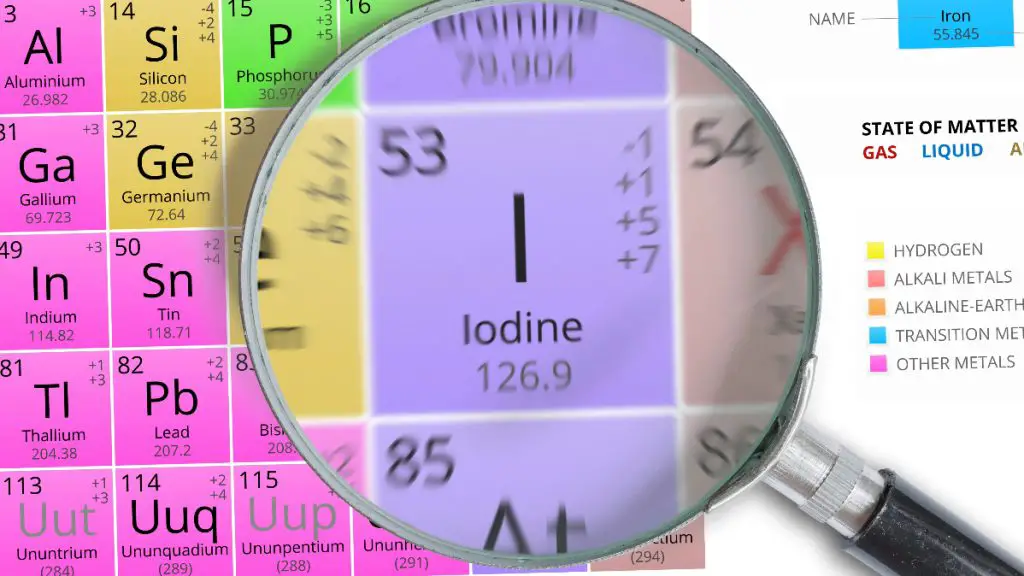
Sea moss contains iodine which is a very significant ingredient among the many others in this superfood. Iodine is a trace element, and although it’s needed in relatively small quantities, it plays a crucial role in our bodies and overall health.
First and foremost, iodine supports healthy thyroid function. The thyroid, a butterfly-shaped gland located in the neck, produces and releases hormones that regulate our metabolism. To create these hormones, namely T3 and T4, my body needs iodine as a vital building block.
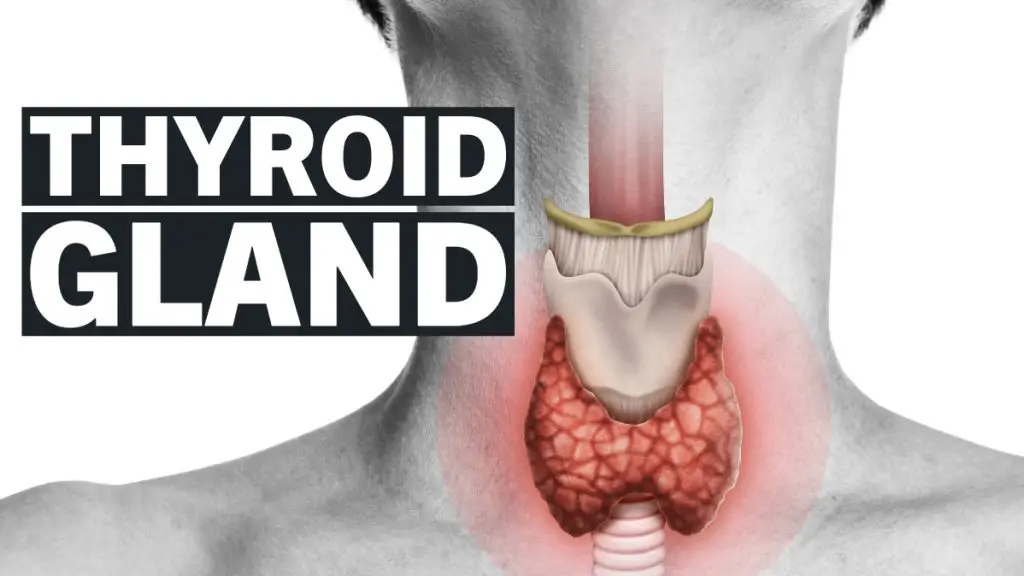
When someone doesn’t get enough iodine in their diet, they may develop hypothyroidism, a condition where the thyroid doesn’t produce enough hormones. This can lead to symptoms like fatigue, weight gain, and even depression. Iodine deficiency is also a leading cause of thyroid enlargement, commonly known as a goitre.
The great news for me and other sea moss enthusiasts is that incorporating this nutritious algae into our meals or consuming it as a supplement can help ensure we receive an adequate supply of iodine. With its natural iodine content, sea moss has the potential to contribute to maintaining a healthy thyroid, and by extension, our overall well-being.
It’s amazing how sea moss packs such a nutrient-dense profile, containing so many essential minerals and vitamins in just a small serving. Incorporating sea moss into our daily routine can help you maintain a balanced and healthy lifestyle and it’s something I include in my regular diet.
Remember to source your sea moss from trusted suppliers and consume it responsibly to reap its full benefits.
How Many Minerals in Sea Moss
As mentioned, Sea moss is known for its rich mineral content. It contains an array of vitamins and minerals that are essential for maintaining a healthy body.
In this section, I’ll go through some of the important minerals present in sea moss and their benefits, as well as address concerns regarding the presence of toxic elements.
Important Minerals
There are approximately 92 minerals found in sea moss, some of which are vital for various bodily functions.
Below is a list of the main minerals and their benefits for the human body:
- Calcium: Essential for strong bones and teeth, as well as proper muscle function.
- Iron: Crucial for maintaining healthy red blood cells and transporting oxygen throughout the body.
- Magnesium: Necessary for nerve function, muscle relaxation, and energy production.
- Potassium: Helps regulate fluid balance, muscle contractions, and nerve signals.
- Copper: Contributes to the production of neurotransmitters, collagen, elastin, and energy.
- Phosphorus: Works with calcium to build strong bones and teeth, and plays a role in energy production.
- Zinc: Supports immune function, wound healing, and the production of proteins and DNA.
- Selenium: Acts as an antioxidant to protect cells from damage, and plays a crucial role in the regulation of thyroid function.
- Silicon: Important for maintaining the health of connective tissues, bones, and blood vessels.
- Manganese: Helps the body process certain nutrients, and is a component of various enzymes.
- Sulfur: Supports the body’s detoxification processes and the production of collagen.
- Sodium: Regulates fluid balance, assists in nerve signal transmission, and maintains muscle function.
These minerals, along with other trace minerals present in sea moss, are important for overall health and well-being when consumed in appropriate quantities.
Presence of Toxic Elements
While sea moss is certainly an excellent source of essential nutrients, it is important to be aware of the potential for toxic elements to be present as well. Due to being a type of seaweed, sea moss can at times accumulate heavy metals, such as lead, arsenic, and mercury, from the surrounding environment.
However, this does not mean that sea moss should be avoided entirely, but rather it should be consumed in moderation and sourced responsibly from trusted suppliers. Additionally, it is essential to properly prepare sea moss by thoroughly rinsing and soaking it before use, as this helps to remove any potential contaminants.
It is important for me to adhere to a balanced diet, incorporating a variety of nutrients from different sources, in order to maintain optimal health. Sea moss can certainly be a valuable addition to any diet, provided it is consumed responsibly and with an awareness of potential contaminants.
Consumption of Sea Moss
Sea Moss in Your Diet
I am often asked how exactly I consume sea moss.
One of the ways I like to consume sea moss is by making a gel. Sea moss gel is simple to make by blending soaked sea moss with water and can be stored in the refrigerator or even the freezer for future use.
The gel is low in calories, fat, and carbohydrates, making it a fantastic addition to my diet.
The key is to get a sea moss that has been grown in the right way and is being sold by a reputable source. I have a free guide on how to find a good quality source of sea moss here.
Health Benefits of Sea Moss
Thyroid Health
One of the many health benefits of sea moss is its significant contribution to thyroid health. As a rich source of iodine, a vital nutrient for a healthy thyroid, sea moss plays a crucial role in the production of thyroid hormones. Iodine deficiency can lead to hypothyroidism, a condition affecting the metabolism and energy levels. By incorporating sea moss into my diet, I ensure I get enough iodine for my thyroid to function properly.
Bone and Skin Health
Another health benefit of sea moss revolves around the support it provides for bones and overall skin health. Containing calcium and silicon, key minerals for strong bones, sea moss is beneficial for maintaining bone health. Additionally, sea moss is rich in antioxidants, which means it promotes healthier skin by fighting off free radicals and oxidative stress.
Circulatory and Digestive System
Sea moss also benefits my circulatory and digestive systems. It has a wealth of essential nutrients, like iron and magnesium, in aiding various bodily processes. Iron is necessary for transporting oxygen in the blood, thus promoting good circulation, while magnesium helps maintain healthy blood pressure. Its positive effects on digestion are attributed to its fibre content, which facilitates weight loss, gut health, and a healthy heart by improving cholesterol levels.
Boosting Immunity
Lastly, incorporating sea moss into my diet has been effective in boosting my immune system. Packed with plenty of vitamins and antioxidants, sea moss strengthens my immunity and helps me fight off common illnesses. Its nutrient-dense nature supports immune health, ensuring I can maintain an active lifestyle without being disrupted by illnesses.
Side Effects and Precautions

As with any natural supplement, it’s important to take the potential side effects and precautions of sea moss into consideration. In this section, I’ll discuss possible side effects, environmental concerns, and the importance of consulting a healthcare provider before incorporating sea moss into your diet.
Possible Side Effects
While sea moss is generally considered safe for most people, there are some potential side effects to be aware of. If you try it and have a negative reaction in any way, listen to your body and adjust intake accordingly.
I put together a short video of some of the effects it can have on those trying it for the first time.
Environmental Concerns
Another aspect to consider is the environmental impact of sea moss harvesting. The growing demand for this seaweed has led to concerns about the sustainability of wild sea moss populations and their ecosystems. Ensuring that the sea moss you consume comes from a responsible and sustainable source can help minimise the impact on the environment.
Consulting a Healthcare Provider
Before incorporating sea moss into your diet, it’s always best to consult a healthcare provider, particularly if you have a pre-existing hormone condition or are taking medications. They can provide guidance on potential interactions, and any precautions you should take.
In conclusion, while sea moss offers a range of potential health benefits, it’s vital to be aware of the possible side effects, environmental concerns, and the importance of consulting a healthcare provider before incorporating it into your routine. With a cautious approach and informed choices, sea moss can be a beneficial addition to a healthy diet.
Frequently Asked Questions
What minerals can be found in sea moss?
In sea moss, you can find a variety of minerals that are essential for maintaining a healthy body.
Some of the key minerals present in sea moss include magnesium, calcium, potassium, iodine, iron, manganese, sodium, and zinc.
Additionally, sea moss is also known to contain other nutrients like calcium, phosphorus, and sulfur.
How does sea moss gel benefit the body?
Sea moss gel offers various health benefits due to its rich mineral content.
These minerals are vital for promoting healthy bones, maintaining muscle functions, and supporting a robust immune system.
Furthermore, sea moss is a good source of essential vitamins like A, C, E, and K.
By incorporating sea moss gel into your diet, you’re providing your body with the necessary nutrients to maintain good health.
Can sea moss provide all essential minerals?
Although sea moss contains a high concentration of essential minerals, it may not provide all the required minerals in the right amounts.
Nonetheless, it makes for an excellent supplement to help increase your overall mineral intake, in conjunction with a well-balanced, nutrient-rich diet.
What is the daily recommended dosage of sea moss gel?
There’s no specific daily recommended dosage of sea moss gel, as individual requirements may vary based on age, health, and lifestyle.
However, generally, a common suggestion is to consume 1-2 tablespoons of sea moss gel per day. You can use sea moss gel in smoothies, juices, or simply add a spoonful to your favourite dish.
Are there any warnings or precautions for taking sea moss?
If you’re pregnant, nursing, or have any pre-existing health conditions, it is best to consult with a healthcare professional before including sea moss in your diet.
It’s also crucial to procure your sea moss from a reputable source and thoroughly clean it before use, as it may contain debris or sand from its natural habitat.
Is it possible for sea moss to replace multivitamins?
Sea moss is an excellent source of various minerals and vitamins, but it may not replace multivitamins entirely.
While sea moss is a valuable addition to your diet, it is always recommended to consume a well-rounded, nutrient-dense diet to ensure you’re meeting all your dietary needs.
Multivitamins and sea moss supplements can be used together to complement a healthy lifestyle.
Author
-
Stuart Patrick is a health and fitness lifestyle journalist who writes for ListedFit.com.
“I've spent a lot of time trying to get in shape and change my body and I realised there are so many untruths in the health and fitness industry that can slow down or stop your progress, so I share my knowledge and experience to help others to cut through the BS.”
Latest entries
 GearApril 6, 2024HOKA Kawana 2 Review – Are These The Best HOKA Gym Shoes?
GearApril 6, 2024HOKA Kawana 2 Review – Are These The Best HOKA Gym Shoes? CrossFitApril 4, 2024How Many Pull-Ups Should I Do Daily? Let’s Figure it Out…
CrossFitApril 4, 2024How Many Pull-Ups Should I Do Daily? Let’s Figure it Out… MacaMarch 17, 2024Which is Better: Black or Red Maca? Comparing Benefits and Uses
MacaMarch 17, 2024Which is Better: Black or Red Maca? Comparing Benefits and Uses FitnessFebruary 18, 2024Join the Discount Club Today!
FitnessFebruary 18, 2024Join the Discount Club Today!
Affiliates:
This post may contain affiliate links that at no additional cost to you, the site may earn a small commission. We only recommend products we would use ourselves and all opinions expressed on this site are our own.
General Advice:
The information provided in this article is for general informational purposes only. It is not intended as a substitute for professional advice. Always consult with a qualified healthcare professional before starting any new diet, exercise program, or making changes to your health routine.
Accuracy Advice:
While we strive to provide up-to-date and accurate information, the content in this article may not reflect the most current research or medical guidelines. We encourage readers to do further research and consult with professionals for more personalized advice.
Our Recommendations:
The products and services mentioned in any of our articles are recommended based on our independent research and personal experience. We are not sponsored by any company. We aim to suggest products and services we believe are of high quality and could be beneficial to our readers.





